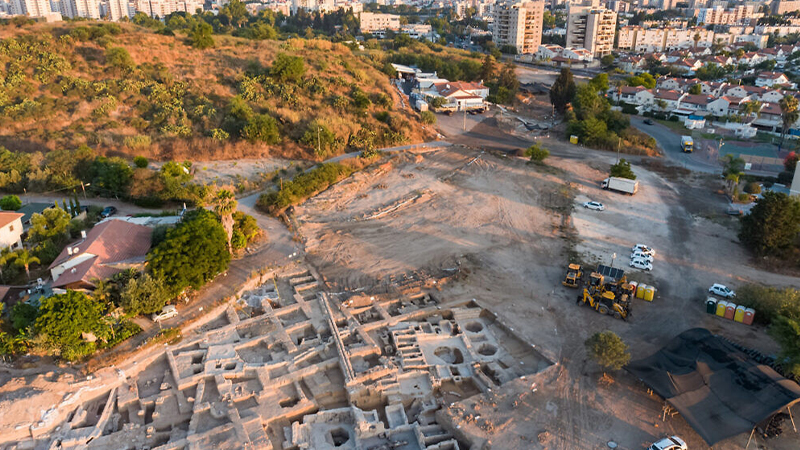Archaeologists uncovered an old winery in Israel dating back 1,500 years, and once again we’re reminded that past civilizations enjoyed drinking just as much as we do.
Evidence was discovered in the city of Yavne, just south of Tel Aviv, and the facility is believed to have been in use during the fourth and fifth century, The Times of Israel reports. When in use, the Byzantine-era winery would have supplied nearby areas with two to three million liters of wine each year.
Researchers found five large wine presses within the ruins, each one covering nearly 2,400 square feet. Grapes would be crushed by foot and fermented in large vats, then aged in one of the complex’s four large warehouses.

“We were surprised to discover a sophisticated factory here, which was used to produce wine in commercial quantities,” Dr. Elie Haddad, Liat Nadav-Ziv and Dr. Jon Seligman told The Times of Israel. “Furthermore, decorative niches in the shape of a conch, which adorned the winepresses, indicate the great wealth of the factory owners.”
Kilns used to make clay jugs remained somewhat intact, though tens of thousands of broken jugs were also discovered. These amorphae were known as “Gaza jars” at the time, and came to signify the brand of wines exported from the ports of Ashkelon and Gaza to the rest of the Mediterranean basin. Drinkers from Egypt, Turkey, Greece, and beyond would enjoy the light whites of the region.
Additional wine presses dating back to the Persian era (nearly 2,300 years ago) were also uncovered in the area. Further research will be conducted on the site, but archaeologists will soon have to cover it up for winter.


